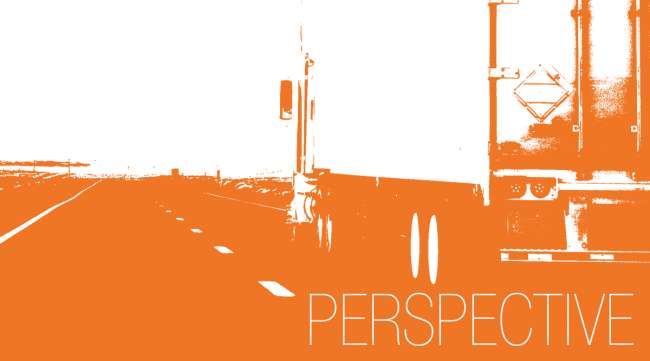Chief Operating Officer and Co-Founder, Loadsure
Perspective: Cargo Integrity Plan Reduces Risk

[Stay on top of transportation news: Get TTNews in your inbox.]
Supply chain disruptions are becoming more common, but one factor that often gets overlooked in conversations about intermodal risk management is the importance of cargo integrity.
Cargo integrity refers to the rules of best practice that should be applied to cargo throughout the intermodal supply chain. It covers everything from properly packing a unit to choosing the appropriate mode of transport. Cargo integrity responsibility is usually shared by shippers, third-party logistics providers and carriers, but it’s integral to the secure and timely delivery of cargo in the supply chain.
With that in mind, let’s unpack the key elements of cargo integrity — and why it’s so important.
First, it’s worth examining just how multilayered cargo integrity is. Done right, the process should start with establishing the right mode of transport. This depends on factors like budget, pickup/drop-off destinations, customs rules, the nature of the products and the desired transit time. Regulatory factors also play a part — for instance, if the cargo is due to travel through a region with restrictions on specific goods, an alternative route by a different mode of transport might be necessary.

Heide
Once the best mode of transport has been identified, it’s time to choose the correct cargo-hauling unit for the cargo type and the different phases of its journey. You’ll need to make sure the unit isn’t contaminated by traces of previous cargo and that it’s protected from possible contamination by plants and animals.
Next, there’s the packing process. Cargo needs to be optimally packed and positioned with sustainable load distribution achieved by strapping and bracing. This guarantees the unit can be stowed securely for different stages in its journey, be it by road, air or sea. Today, you can even outsource packing to a transportation damage management system like Ship It Pro, which uses artificial intelligence-tested load patterns and modeled simulations to map out load configurations.
RELATED: What Causes Supply Chain Disruptions?
Thorough cargo integrity also involves the classification of the goods. That means ensuring these goods are appropriately marked and that any required documentation is accompanying them — especially if they could be considered high risk. This extends to the advance communication of information about the load’s contents, which should be sent to all the relevant parties to facilitate its safe handling.
There are no official regulations for cargo integrity, but there is the CTU Code — also known as the Code of Practice for Packing of Cargo Transport Units. This code was jointly developed by the International Maritime Organization, the International Labour Organization and the United Nations Economic Commission for Europe. It offers guidance on “all aspects of loading and securing cargo in containers and other intermodal transport,” but it’s not compulsory; instead, it’s described as a “non-mandatory global code of practice.”
The biggest advantage of following this code and taking the measures outlined above is that the cargo is more likely to reach its destination in salable, usable condition. It not only protects the value of the individual cargo but also the cargo surrounding it. When everything is correctly packed, secured and documented, the risk of accidental cargo loss (and the inevitable supply chain disruption that follows) is reduced. That means shippers are less likely to claim on their cargo insurance.
RELATED: How Carriers Are Taming Insurance Costs
Solid cargo integrity practices also can reduce the number of injuries sustained during the loading and unloading process. It can even help prevent large-scale incidents like warehouse fires, which can be caused by hazardous or flammable materials that are packed unsafely.
TT's Seth Clevenger and Mike Senatore dive into the details behind the 2024 Top 100 Private Carriers list. Tune in above or by going to RoadSigns.ttnews.com.
Following cargo integrity guidance minimizes risk, but ensuring your cargo is properly insured can save you from dealing with the financial burden and reputational damage that might result from lost or damaged loads.
There are many cargo insurance plans in the market, including annualized policies and dynamic, on-demand insurance. Combined with observing the CTU Code, choosing the right freight insurance for your cargo forms an integral part of your loss prevention plan.
Jim Heide uses his transportation and technology experience to help steer Loadsure strategy and product development.
Want more news? Listen to today's daily briefing below or go here for more info:





